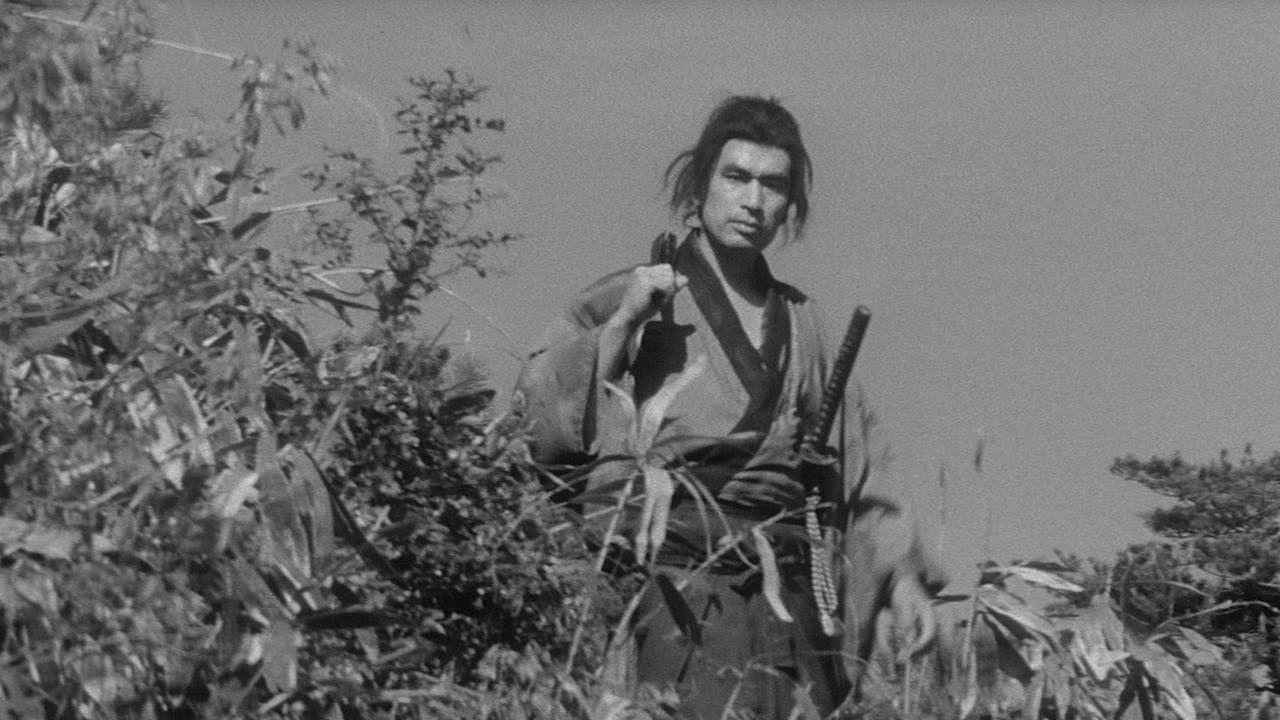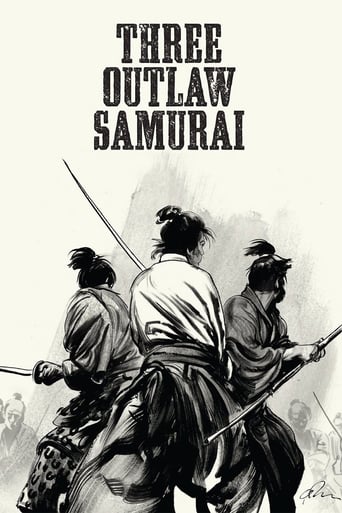



I like the storyline of this show,it attract me so much
View MoreSelf-important, over-dramatic, uninspired.
Excellent, a Must See
Ok... Let's be honest. It cannot be the best movie but is quite enjoyable. The movie has the potential to develop a great plot for future movies
View MoreA wandering ronin stumbles upon a mill building after finding a woman's hair pin. Inside three peasants have kidnapped the magistrate's daughter in order to seek justice on behalf of all the peasants. The cynical samurai schools the peasants on how to handle a kidnapping. The humorous but portentous beginning sets up the characters and action of the film.It is an entertaining chambara film, but there is lack of depth in terms of character study that set apart the best films. Nevertheless, it is a quality, skilled debut film by Hideo Gosha.During some of the sequences, the camera makes a well timed dutch tilt to present the action in the film. The action and suspense in the film is well choreographed as the upper hand changes during the first act. The action is restrained and purposeful which makes the fights much more compelling.SPOILERSIn this film we see the loyalty of two of the samurai to the peasants as a virtue despite all the hesitations on their part. Are they only defending the peasants because there are no better options for independent samurai? The third samurai works for the ruthless magistrate. He switches allegiances out of necessity when the magistrate places a price on his head.Part of the film looks at class warfare as the magistrate hoards all the goods and the peasants starve. The film does not fall into romantic view of the struggle which is what sets it apart from other films. In the end, the peasants are too afraid to take action and risk their lives in the name of justice. They are unwilling to present their demands to the Lord of the magistrate when he visits. When people cannot take their own fate into their own hands, there is not much that can be done for them. The daughter of the magistrate develops empathy for the plight of the peasants, but also remains deeply loyal to her father in their family bond. The magistrate is the only two dimensional character. He is ruthless and ready to betray anyone in his way. In some regards, the number of betrayals by the magistrate in the film detract from the possibilities of greater character development as his own character.I loved the dust blown by in several sequences that make the locales of combat come across as much more desolate and rugged.Nevertheless, this is a great film for lovers of samurai films who wish to delve deeper than the typical popular films.
View MoreIn some ways, this film might be a bit anachronistic. I really am not sure it such an event might have happened--particularly with the code of Bushido putting such a premium to authority. But you sure would HOPE that it might have happened! The film begins with a small group of peasants holding the magistrate's daughter hostage. After all, his taxes are literally starving the peasants and he would seem to care nothing about their plight. So, in their minds, doing something as insanely foolish as the kidnapping seemed like only hope. It just happens that three ronin (unemployed samurai) arrive in town about that time. One agrees to work for the evil magistrate, one assists the kidnappers and one stands back...at least at the onset. Eventually, though, because of repeated lies and infamy by the magistrate, the three samurai eventually are drawn together as there is something even higher and more important that obedience--doing what is right.There is a lot more to the story than this and it comes off like a western that has been relocated to feudal Japan. However, it is so much better than just that--with exceptional acting, action and plot. In many ways, it plays like a typical Zatoichi film merged with the Kurasawa film "The Seven Samurai". Exciting, entertaining and tough--this is one of the better sword and samurai films I've seen--and I have seen hundreds (a lot for an American).Simple, exciting and very effective.
View MoreUnlike the more familiar Seven Samurai, remade as The Magnificent Seven, this film only features three. Really, it is only one for most of the movie, then another joins in, and finally the third.The story is familiar. The Samurai feel sorry for the poor peasants and one even gives up his luxurious life in the Magistrate's service to fight the evil tax collector that is bleeding the peasants dry.It's the film debut for Hideo Gosha, and he does a great job of mixing samurai fighting and humor and concern for the poor into an enjoyable film that was beautifully shot.I am certainly going to look for more of his work.
View MoreExcellent black and white cinematography, solid acting, well done action and a reasonably good story make this a satisfying film. The story of wandering samurai coming to the aid of impoverished farmers is not new and the characters are stock but this isn't a real problem if you are looking for something to sit back and enjoy easily. The direction is very assured and it's remarkable that this is a first directorial effort. The actors are appealing and the film never gets bogged down in long exposition or beauty shots. The comparison to a spaghetti western is apt.The film seems like it was intended to start a series based on the three characters. Too bad that didn't happen.
View More